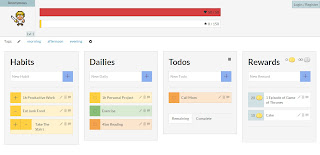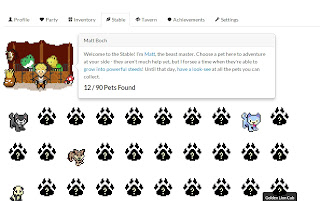From an Ask Amy Column, July 23, 2013
DEAR AMY: I am a 17-year-old woman. I do not want children and cannot picture having any. I am a very bright student with a lot of drive and a full college scholarship waiting for me next year, so it is safe to say that I am taking my life and future career to a far higher level than the ordinary stay-at-home mother.
I have decided I want to have surgery in order to guarantee against ever becoming a parent, and yet family and friends scoff at me for making this decision.
I know that numerous men and women out there have found their children to be the light of their lives and have no regrets (even if the children were not planned), but parenthood is just something I do not want. A baby is not going to make me happy. I am going to be the one to make me happy.
How do I show to the people I know that, although I am young, I am not going to change my mind on the baby subject tomorrow, next month, next year or even when/if I am 35 and single?
If I ever really do want a kid of my own, he or she will be an older adoptee, and I will have lived a pretty fulfilled life; I’ll be financially and emotionally ready to give that child everything they need. How can I convince people I want to be surgically sterilized? — Of Sound Mind
Oh, Of Sound Mind, I’m going to skip Amy’s response, which I found so-so and a bit condescending, and tell you that I completely feel for you. When I was seventeen, I didn’t want children either. Like you, I had plans that didn’t involve children and I didn’t want them, not when I was seventeen, and not when I was thirty-five. When I told people this, they all said “you’ll change your mind.” It was infuriating, to have them dismiss one of my core beliefs. It drove me crazy.
In my twenties, I still didn’t want children. Not then, not even when I was thirty-five. When I told people this, the response was, “Well, I used to think I didn’t want any children. But then I turned X.” And funnily enough, X was always two years older than I was at that time. It became rather comical, hearing the same story over and over, with the age adjusting just a little bit later as each year went by. I had finally learned not to spit with rage at their doubt, so I just smiled my Cheshire Cat smile and moved on with my childless life.
By the time I hit my thirties, I still didn’t want children. Not then, and especially not when I was in my forties. And people, for the most part, had stopped telling me I was going to change my mind. Instead, they started conversations assuming I had children. I had to learn to navigate through the slight awkwardness, of the, “Oh no. No kids.” response. It was tough, letting them know that I myself was happily childless, and that I fully appreciated that they were over the moon with their wonderful children. But I figured out that conversation.
But here’s what I’m going to say to you, Of Sound Mind. I fully trust that your seventeen-year-old self knows yourself well enough to know that you have no desire to bring a child into this world. My own seventeen-year-old self did, and I’m guessing you aren’t so different. But I’m going to advise you to hold off on the sterilization. Here’s why. One of the best things about the stage of life you are in is the incredible amount of choices you have. You could decide to travel the world. You could decide to go ahead and get that advanced degree. Maybe you want to focus on Chemical Engineering and Mexican Pottery. You can do all of that. Your world is wide open right now.
However, this limitless existence most likely won’t last forever. Eventually, the choices you make will narrow your focus a bit, and then a bit more. Pretty soon, the decision to travel the world will be a lot more difficult to pull off. Not that you can’t, but maybe you would have to quit your awesome job, or maybe your very cool boyfriend you love doesn’t want to come along. Perhaps your parents will get sick and you will have to care for them. Or, you might have to choose between the Chemical Engineering and Mexican Pottery, making the pottery your sole focus and fitting the Chemical Engineering in here and there with some freelancing.
The narrowing isn’t bad. You will give up a lot of “maybes” for some good actuals and that will be pretty cool. But there is no way to be 100% sure at seventeen that you won’t want to have a baby in the future. Maybe your thirty-one-year-old self will wake up one morning with a grand desire to procreate. And that older self is going to be very mad at you and your youthful action and then is going to have to do a big old expensive workaround in order to have that baby. Now for myself, I never did wake up with that feeling, but you, who knows? It’s good to keep your options open.
But here’s the best part about living in today’s world. In the realm of sex, you can have your cake and eat it too. Pretty much like the guys have historically done. Because you are completely sure you don’t want to have a child, research long-term birth control options and then pick something that works for you and works for a long time, but is still reversible. You’ve got a bevy of choices. And I would suggest doubling up on the birth control, (a.k.a. use condoms) just to be on the safe side. I’d also advise you to be very upfront with your sexual partners about your desire to not have children and be very clear that should the birth control percentages work against you and you do become pregnant, that pregnancy will end soon after it begins. It would also be a good idea to always have money stashed away in case you need an abortion and also to live in a state where you still can get an abortion. (I can’t believe I had to write the last part of that sentence, but it can be an issue.)
Sure, it would be easier to be able to skip the whole birth control stage, but look at it this way: you are taking care to support the choice you are making today while keeping the potential future choice (that I totally get you aren’t ever going to take) wide open. You also have the bonus of that if you always insist on condoms, you have a better chance of avoiding disease that sexual shenanigans can sometimes bring.
And if things never do change, if it’s been a few decades that you’ve been of childbearing age and you still don’t want to give birth to a child? Go ahead and take advantage of one of those permanent measures. That will feel good too.




